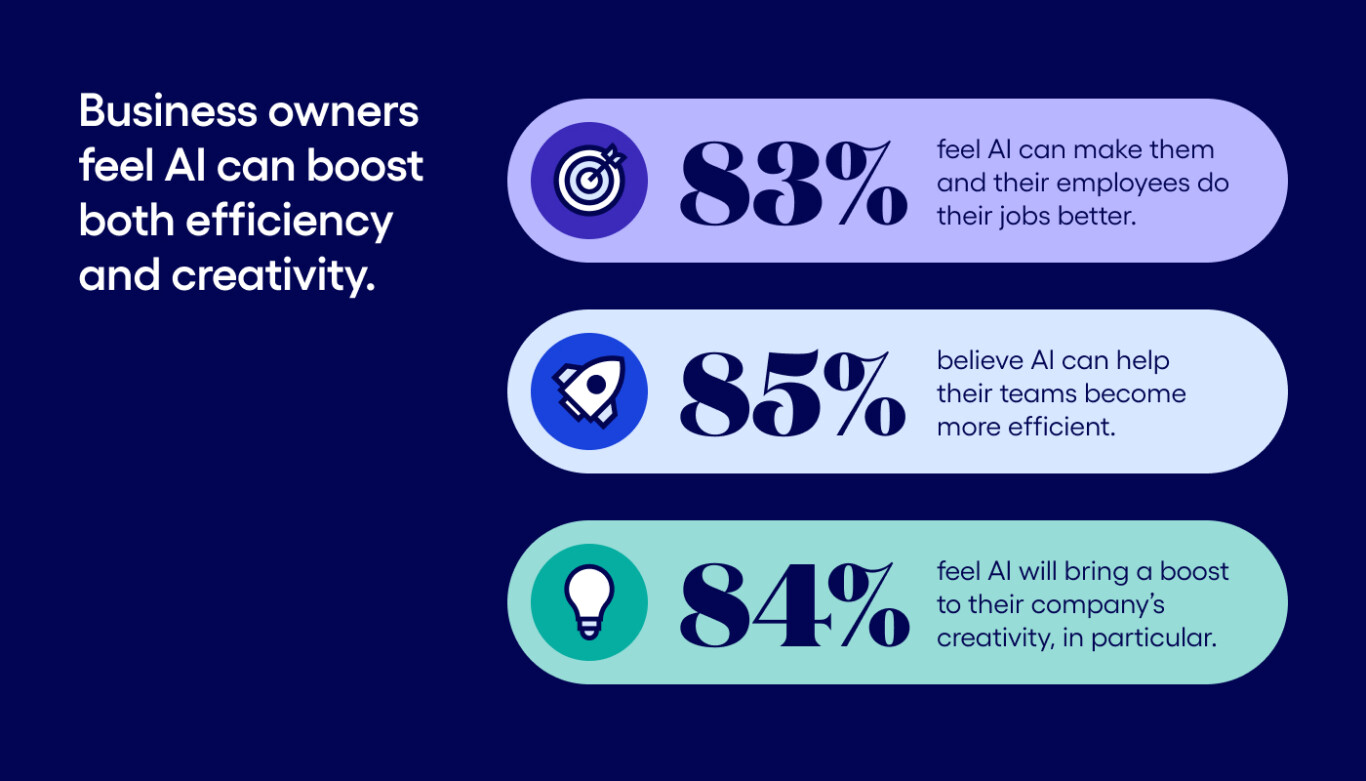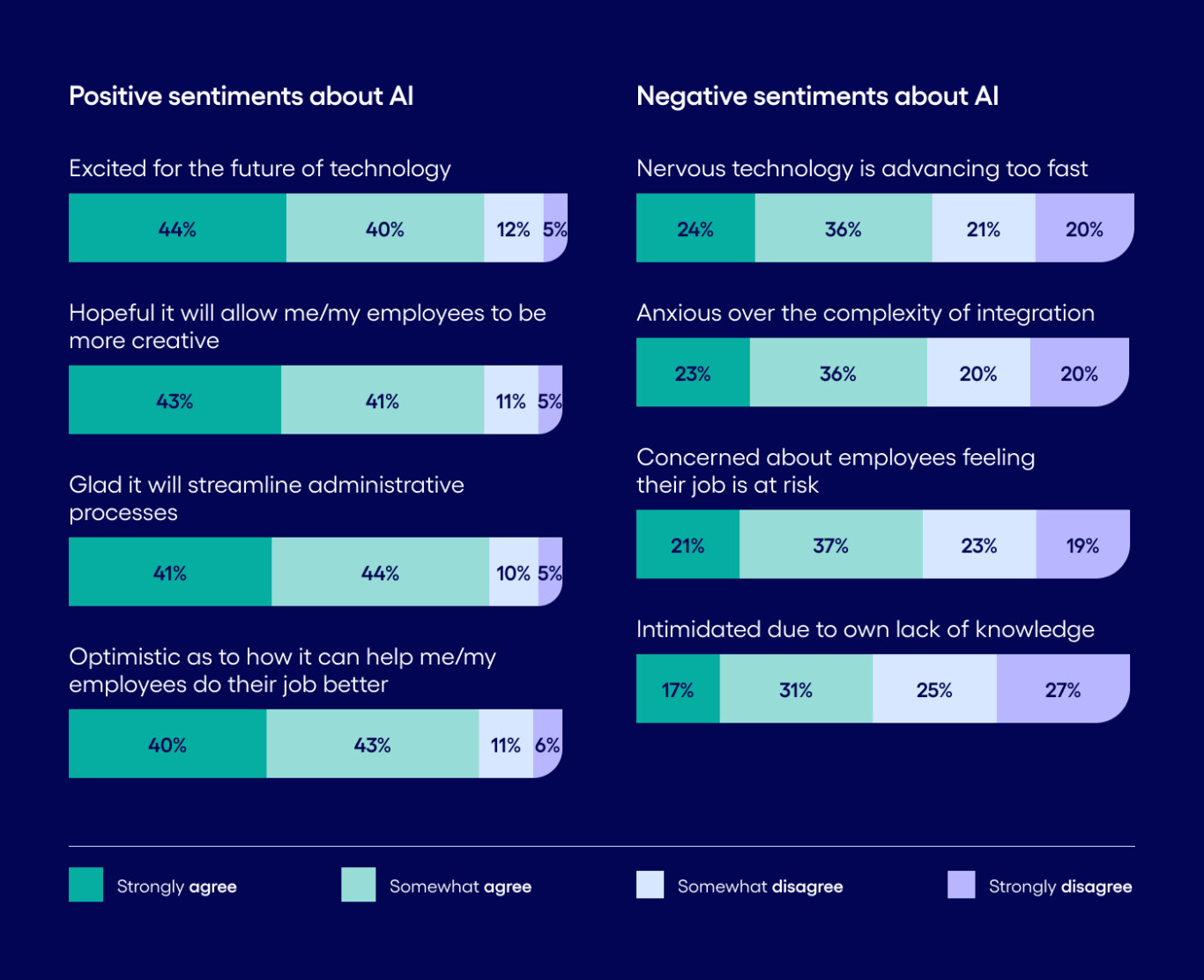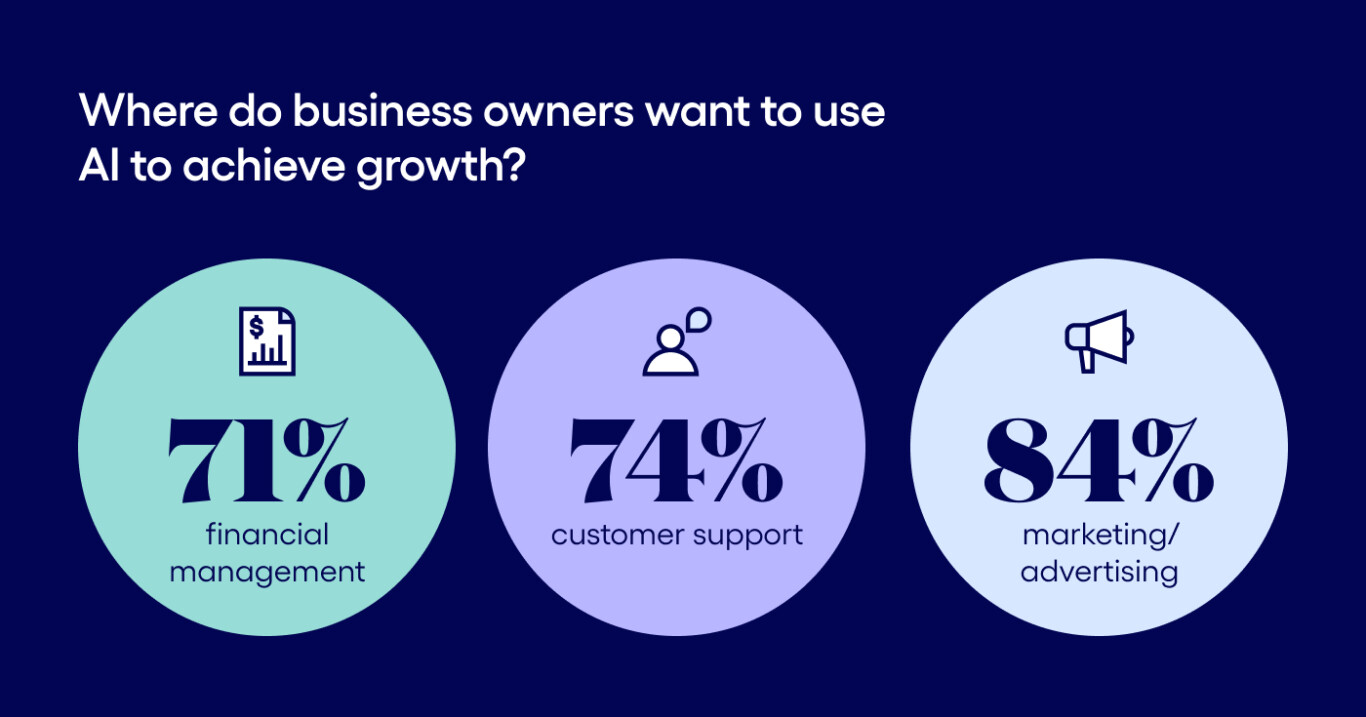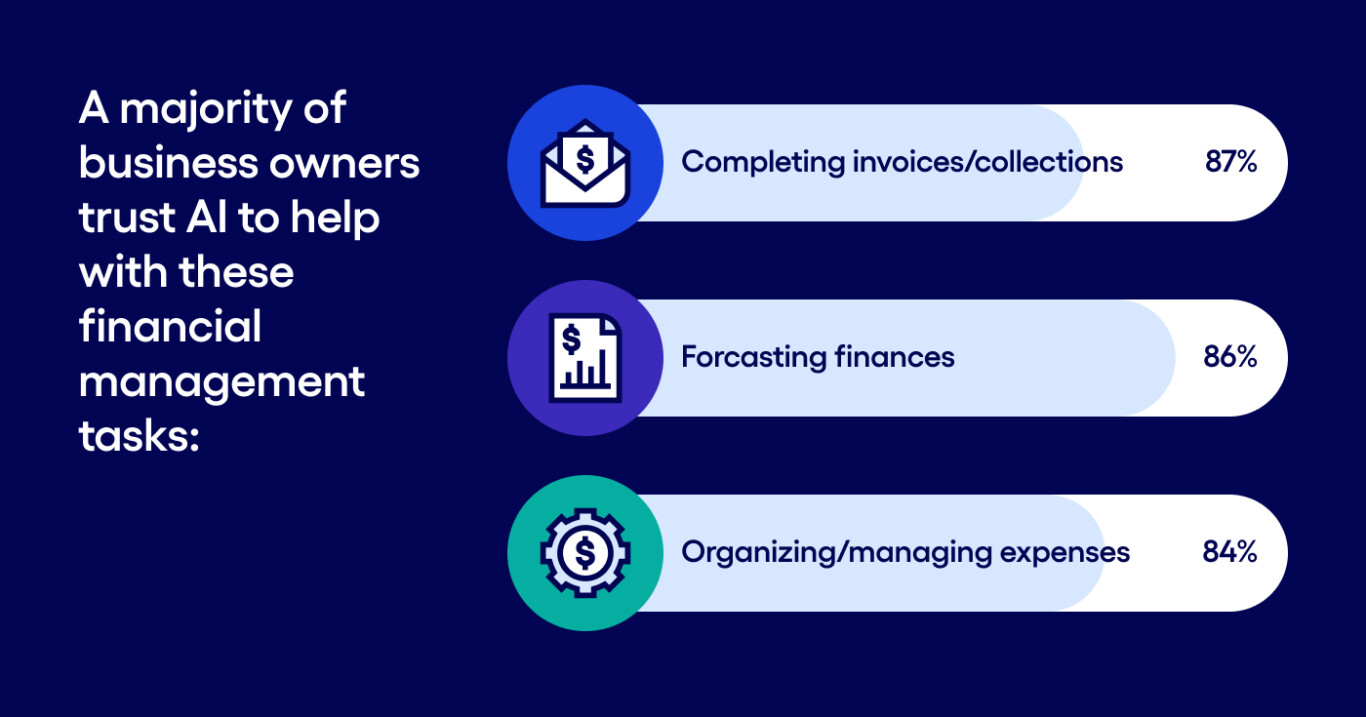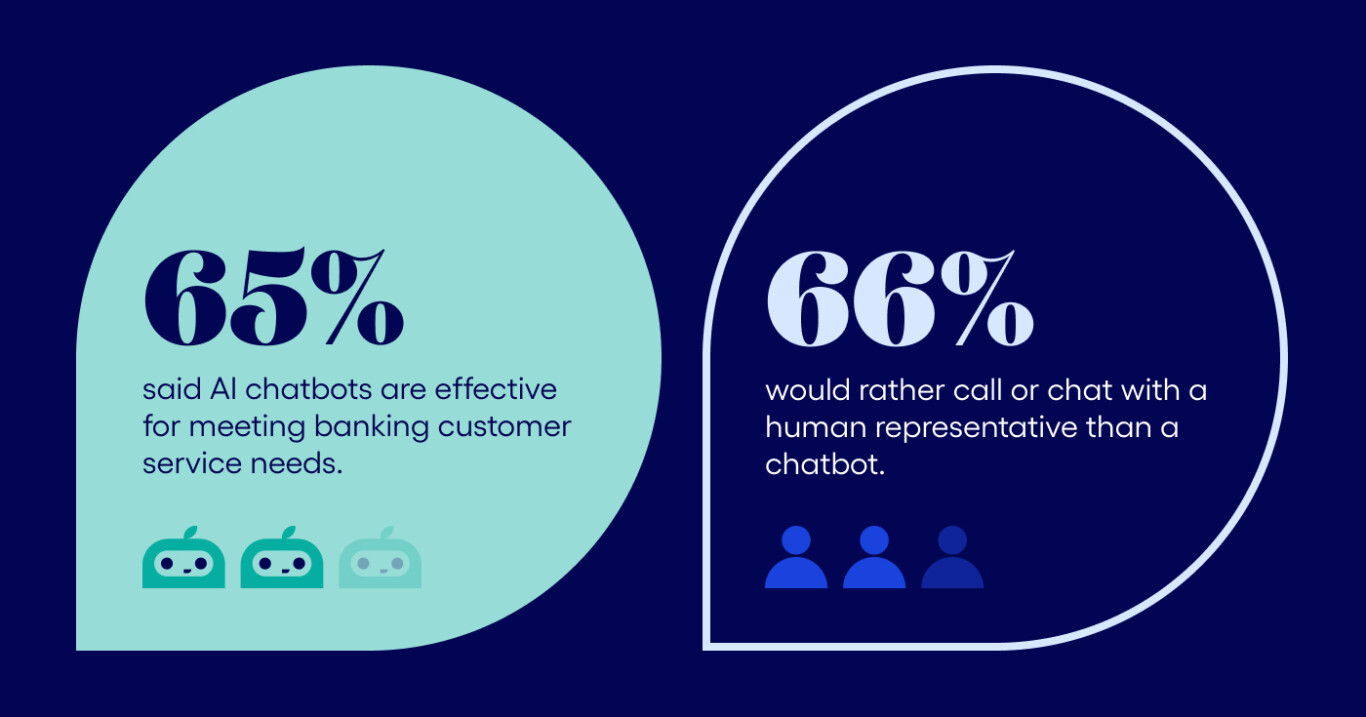We recently surveyed 750 business leaders about where (or whether) they plan on implementing AI into their growth strategies, as well as whether they feel AI will benefit businesses overall.
Our overarching finding was that most small and medium business owners are already using AI, and are optimistic that these tools will continue to improve efficiency and creativity. Our respondents most hoped to wield these new tools in the areas of customer experience and financial management. See more key insights below.
What you need to know
- Most small and medium businesses already use AI, and business
leaders are optimistic about AI’s potential to further streamline
processes and increase productivity. - Respondents broadly feel AI can help employees perform better and more creatively, while some voiced concerns about safety, integration, and job displacement, and integration.
- There may be a gap between feelings about current AI and feelings about its potential—respondents find AI useful but not yet ready to replace human interactions.
Our respondents and methodology
We conducted verbal interviews with 750 business leaders from 369 small and medium-sized businesses across the United States. “Small and medium-sized” was defined as having 1–500 employees and annual revenue of $250,000–$5,000,000. We used “business leader” to refer to people with power or influence over financial decisions who work in executive management, finance, or corporate strategy, and are at least a manager or above in rank.
The purpose of this survey was to gauge business leaders’ sentiments about AI as they continue to implement and adapt AI-based tools into their operations.
Small business owners believe AI will help them grow
Small business owners widely believe that AI will substantially affect their operations, and not just by making operations more efficient.
While not all SMBs are inclined to ‘strongly agree’ with positive attitudes toward AI, almost all are willing to ‘somewhat agree,’ which indicates a general openness to engaging with AI as a business tool.
AI, of course, already plays a large role in business, and reservations about it were grounded in concerns over the technology’s speed of advancement, its potential to replace human jobs, and the difficulty of integration. Companies may become more willing to integrate AI as they and their employees become more informed about AI safety, privacy, and best practices for using it in business.
Small business owners think AI will help in these three areas
Most small and medium businesses are already using AI, and are eager to use it in many different areas.
Interested in using AI to grow your small business?
Using AI to manage small business finances
Business owners broadly accept AI in banking, believing that AI-assisted tools are more time- and cost-effective while making fewer human errors. 65% of respondents said that AI chatbots are effective for customer support, and 63% said they’d be more likely to use a banking provider with AI-assisted offerings like support and data analysis.
Respondents who said they were less likely to use a bank that uses AI replied that AI tools can be frustrating, inefficient, and potentially unaccountable compared to the help of a live person. This finding—that by removing human interaction AI may create new frustrations—was repeated across other areas of our study.
Using AI to improve customer experience
Despite most respondents believing that AI chatbots are effective, roughly the same percentage believe that human representatives are still superior. This suggests that some of the optimism around AI is based on where respondents project it will go, rather than where it is today.
As large language models and voice recognition softwares improve, AI chatbots may become more flexible, introducing possibilities like adapting their voice and tone to a customer’s dialect, emotional state, or experience level. This flexibility may also extend to design, such as an AI that adapts your website or mobile app to a customer’s unique mobility or visual impairments.
These developments may dampen AI skepticism over time, but for now, if you’re planning to add a chatbot or other AI interaction, you can consider offering it as a support option rather than a replacement for human interactions.

